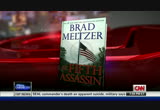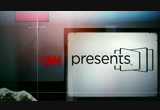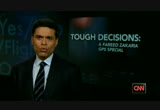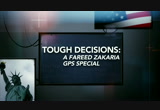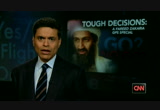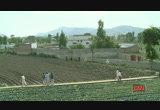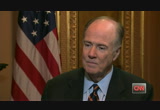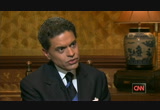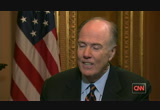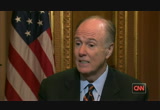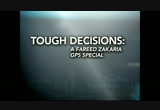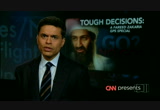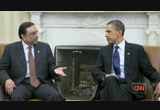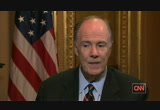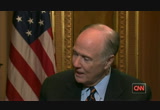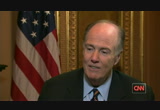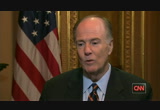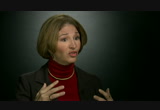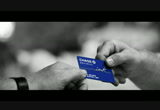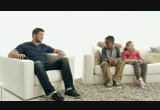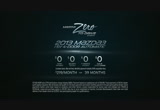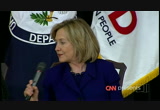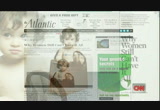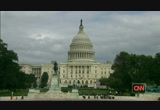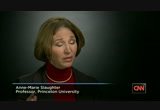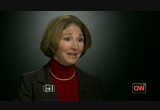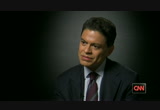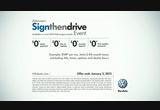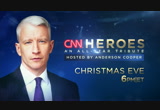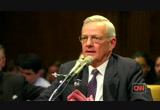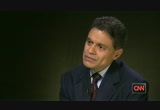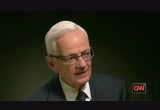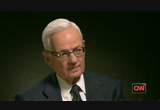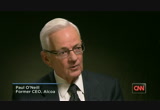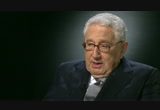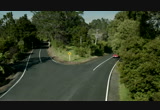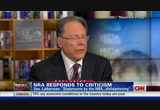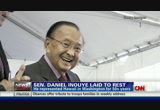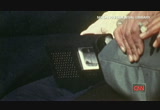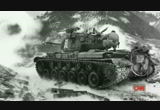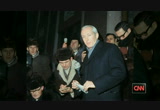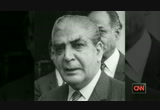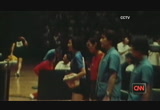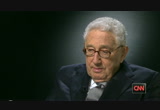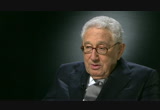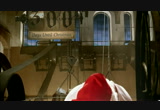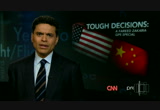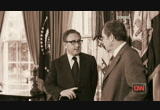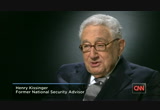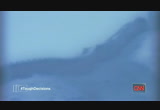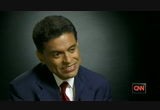tv Fareed Zakaria GPS CNN December 23, 2012 5:00pm-6:00pm PST
5:00 pm
assassin" will be out january 15. check out his show on the history channel. thank you, brad. >> thanks, don. >> stories that captured attention this year. crime, politics, money, the most scandalous stories of the year. the top 10 of 2012 tuesday night, christmas night at 7:00 eastern right here on cnn. as i said yesterday, i know you'll like it. i'm anchoring it. that's a joke. don't take me seriously, y'all. it is a good show. i'm don lemon at cnn headquarters in atlanta. see you back here at 10:00 p.m. eastern. "tough decisions," a fareed zakaria special begins in four seconds. the great french writer albert camus said life is a sum
5:01 pm
of all your choices. we are all defined by the decisions we make every day. we make hundreds of them. paper or plastic, chicken or fish. most are mundane and require little thought, but others are agonizing, often life-altering. then there are the decisions made by leaders. some of which have changed the course of history -- for better and some for worse. july 1776, the american founding fathers' decision to declare independence. january 1863, abraham lincoln's decision to emancipate all persons held as slaves. june 1941, adolph hitler's decision to invade the soviet union. august 1945, president truman's decision to use an atomic bomb against japan. tonight we'll examine the process of making a tough decision. we'll hear about major decisions on an international stage, about
5:02 pm
corporate decisions, and personal ones. from taking down the most wanted man in the world -- >> the president turned to us and said, i made my decision. we are going to go with the raid. write up the orders. >> -- to giving up a dream career. >> it was this sense of almost unreality, of just -- i'm not sure i know who i am. >> to uprooting a company culture. >> some people actually quit. >> to opening the door to a closed society. >> this is like a spy thriller. >> absolutely. >> each of my guests has wrestled with a difficult choice. they will take us through their deliberations, their fears, and how they made their tough decisions. at 11:00 p.m. on may 1, 2011
5:03 pm
201 20111, two blackhawks, a translator and a dog named cairo took off from jalalabad, afghanistan, to kill osama bin laden. >> the death of bin laden mark it is most significant achievement to date in our nation's effort to defeat al qaeda. >> most have heard the incredible details of the compound raid, but little has been revealed about the intense months-long deliberation that led to the final decision to act. so how was the decision made? who was told? how did they weigh the options? tonight we will ask the men tasked by the president to sint thiez intelligence, analyze assessments and run the decision-making process, to act, in a sense, as investigatekegat this decision. i sat down with tom donelin in the eisenhower executive office
5:04 pm
building. when you come into the white house has the trail for osama bin laden gone cold? >> when we came into office at the beginning of 2009 the trail had gone cold. we really hadn't had a good case as to his whereabouts since he was in tora bora in 2001. >> so the president at that point tells leon panetta, get bin laden. >> in the spring of 2009 the president asked to see me, rahm emanuel, leon panetta and said i want to e re-energize the hunt for bin laden. i want this to be your top priority. i want reports every 30 days. >> august 2010, panetta comes back with information. correct? >> that's correct. in the summer of 2010 the cia led by leon panetta said they had evidence that led them to believe there was a high value person of interest at
5:05 pm
abbottabad, pakistan, in a compound there. >> at what point did it become clear there was a high likelihood the person was osama bin laden? >> you say "high likelihood" and this is why it was a tough decision. even at the last principals meeting on april 28, 2011, where the principals sat with the president and gave him their view whether to go or not, even at that point it was a circumstantial case. there was no direct evidence saying we warrantee you, we have direct evidence that osama bin laden is at this compound. >> one of the things you decided to do -- and it must have been the president and you and a small number of people. to limit access to this information and decision-making to a very tight circle. >> yes. >> that excluded the secretary of state, the secretary of defense. take us through that decision-making. >> there was a decision made because of the extreme sensitivity about this, to have
5:06 pm
in the first instance the analytical people, really the solo team working on this. >> at the cia. >> and we made decisions about going operational. bringing in the special forces, expand it. but the president insisted it was closely held. that we had people necessary to be involved at every stage. operational security on this was important. it was a testament frankly to the seriousness of purpose and frankly to the character of the individuals involved in this that not a thing leaked from august of 2010 unt thtil may of 2011. >> by keeping it secret you were able to slow down the clock so you had time to accumulate evidence and make a decision. >> yeah. that's an important aspect generally of policy-making in the national security realm. that's the balance obviously between transparency and secrecy
5:07 pm
and confidentiality. for an operation like this where security is essential, keeping it small, keeping it to a group that has an absolute need to know does give the president and decision-makers more space, more time to go through the options. in this case, of course, we considered every aspect of this. we were able to do so because we did have exceptional operational security. >> you also had to make a decision about when to act. as you said there was never a moment where you had overwhelming evidence. so how did you make that decision? when did it seem that you had achieved a kind of critical balance of evidence? >> there was a point reached where the intelligence professionals came and made the determination and put it to the president that we are not likely, through whatever means we have available to us, to gain any more information to make this any more certain. >> now you have to decide what
5:08 pm
to do. were all options carefully considered? >> they were. there were really several options. they said don't act because the evidence isn't strong enough. and the risks are too high. we can go through that, have a stand-off attack. work jointly with the pakistanis on an operation or have a unilateral raid. at the end of the day, the reason the president did the unilateral raid, the reasons were severalfold. number one, it allowed certainty that there wouldn't be a debate after the operation as to whether or not in fact osama bin laden had been taken out. we would have proof. we wouldn't have bought the united states a propaganda war around this. second, it allowed us to limit the potential for casualties of noncombatants. we discovered obviously during the course of the raid that there were close to two dozen noncombatants at the compound.
5:09 pm
three, it allowed us to limit casualties with respect to people around the compound, completely innocent. and the president had confidence in that option for this reason. although it was 50/50, let's say. there was only a circumstantial case. he had 100% confidence in the special forces that would do this. that they would have the ability to get to the target, do the operation and get back. he had a tremendous amount of experience with them. this is the unique american asset in a team that have been doing this for years in afghanistan, iraq and around the world. >> coming up, inside the situation room. the moments leading up to the final call. >> the president said, thank you. you will have my decision tomorrow. he got up, walked out. [ male announcer ] citi turns 200 this year. in that time there've been some good days.
5:10 pm
and some difficult ones. but, through it all, we've persevered, supporting some of the biggest ideas in modern history. so why should our anniversary matter to you? because for 200 years, we've been helping ideas move from ambition to achievement. and the next great idea could be yours. ♪ and the next great idea could be yours. we are gathered here today to celebrate the union of tim and laura. it's amazing how appreciative ople are when you tell them they could save a lot of money on their car insurance by switching to geico...they may even make you their best man. may i have the rings please? ah, helzberg diamonds. nice choice, mate. ...and now in the presence of these guests we join this loving couple. oh dear... geico. 15 minutes could save you 15% or more on car insurance. plays a key role throughout our lives. one a day women's 50+ is a complete multivitamin
5:11 pm
5:12 pm
5:13 pm
of state or defense were in the loop until the final weeks. worries about the huge potential downside loomed large. no one wanted a repeat of the iran hostage crisis, desert one debacle. the high stakes mission, one of the delta force's first that turned into a deadly inferno when a helicopter and plane collided. here now, more of my interview with the man tasked to run the decision-making process, president obama's national security adviser tom donilon. >> did people worry it would be desert two? >> this is why it was a tough decision. what were the risks? there were obviously risk to the forces carrying out the operation. there was a risk of failure and the impact on the united states and its face to the world. there was risk to the pakistani relationship. we were undertaking university lateral action to go after osama bin laden in pakistan. those risks had to be considered
5:14 pm
by the president. i will tell you this in line with your question. there was a lot of history present in the room. secretary gates. there was a national security aide during desert one. i was an aide to carter. vice president biden was in the senate at the time of the desert one operation. it was clearly on people's minds. also in the room was one of the aspects that came out of desert one and that was the formation of a unified special operations forces command. the troops, the forces that would carry out the operation, that had become such a unique asset of the united states. >> the president made one decision, informed, it seems to me by the history. he asked for two backup helicopters. >> the president asked for enough assets to ensure that the united states, on its own, could get in and could get out of the abbottabad compound. >> now take us to the moment or was it a series of meetings where we now know vice president biden voiced reservations about
5:15 pm
an actual raid as opposed to a missile strike. secretary gates did. some key military leaders did. what was it like? was it a situation where the majority of the president's advisers were urging him not to do this? >> to get to this point there were two dozen interagency meetings leading to this point. on the thursday before the raid it was a final principals committee meeting. a national security council meeting with the president and the chair. having a discussion about him receiving the final briefing on the various operations, the various alternatives. he did ask each of the members, senior members of the national security team for their views. it was a room with divided counsel. at the end of the day the president said, thank you, you will have my decision tomorrow. he got up, walked out of the situation room, up the stairs, across the kol nad by the rose garden and the decision rested
5:16 pm
with him. >> were you nervous, grappling with this issue? how much did it weigh on you? how much did you take back with you home? how much was it an all-consuming issue? >> we were doing the rest of our business as well. that was part of the operational security. that's the style of this president. it was very methodical. very organized. moving through the issues one by one. of course we thought about it a lot. obviously he thought about it a lot having to make the final decision. he did that night and again the next morning at 8:00 i heard from him. he said, meet me in the diplomatic room. i did and bill daley met him. he said, i made my decision. we're going to go with the raid. write up the orders. >> at that point, what do you do? >> i returned to my office, drafted the orders and signed them. >> how was it operationalized? >> we developed prior to that,
5:17 pm
literally, a playbook of every step that would have to be taken from the point that the president made a decision and we began to implement that. we came into the office on sunday morning and began a 10 1/2-hour principals meeting. >> continuous. >> yes. >> you were watching the operation. >> yes. >> when the meeting began, how nervous were you? >> i don't know if it was nervous. focused i think is the better way to describe it. >> were there drops when the helicopter malfunctioned? >> yes, okay. the tail hit the wall and promptly came offnd it had a hard landing. but contingencies were planned for including that contingency. the operation went forward without missing a beat. >> when did you breathe a sigh of relief? at what point did you know the mission was successful? >> no one breathed a sigh of relief including the president until we heard all of the forces were back across into afghan air
5:18 pm
space and out of pakistan air space. >> the united states conducted an operation that killed osama bin laden, the leader of al qaeda, and a terrorist who is reonsible for the murder of thousands of innocent men, women and children. >> when you think about why the president made this decision, why this focus, why take this risk of this operation, it's because it is important for the united states to do what it says it's going to do. i like to think if there had been a c-span covering the activities in the american government leading up to and through the sksz successful completion of the raid against osama bin laden the american people would have been proud. >> up next, a very different set of parameters leading to a tough decision. it's a choice that millions of women face in the course of their lives. >> the stress was just overwhelming. i couldn't live up to that responsibility.
5:19 pm
try running four.ning a restaurant is hard, fortunately we've got ink. it gives us 5x the rewards on our internet, phone charges and cable, plus at office supply stores. rewards we put right back into our business. this is the only thing we've ever wanted to do and ink helps us do it. make your mark with ink from chase.
5:22 pm
5:23 pm
clinton, traveling the world and providing strategic analysis and advice on the day's most complex and urgent international issues. she was the first ever woman policy planning director. it was, she said, the job she had always wanted. >> no one is happier than i am that this day is here. >> but then slaughter just gave it up, quit, turned in her resignation letter to secretary clinton and left washington. she resumd her princeton professorship and life in new jersey with her husband and two teenaged sons. in the wake of her departure, slaughter wrote a cover story for the atlantic magazine. why women still can't have it all. within days the piece became the most read in the atlantic's 150-year history. over 1 million views in the first week alone. tonight she takes us behind that
5:24 pm
personal decision that became a raging public debate. explain the intensity of that kind of job because it's really much more than what many people think. this is a more intense job than very senior jobs in the private sector. >> it's comparable. it's an assistant secretary-level job. you're on pretty much all the time. you're the head of the secretary of state's private think tank. that means you cover the entire world, just as she does. you're on for everything she needs you to do and the longer-term planning. you work pretty much around the clock. >> you're working probably six days a week. >> i commuted back every weekend because i had to be with my kids in princeton every weekend. i would do plenty of work on the weekends. had i been in washington i probably would have worked seven days a week. >> you would get in and leave at
5:25 pm
what time? >> beginning around 6:00 and 7:00 in the morning, ends around 11:00 at night. >> every night. >> pretty much. >> many meetings can't be rescheduled. you have a meeting between 20 countries in kazakhstan. hit has to happen. if you have a personal problem, there is no way to reschedule. >> no. absolutely not. i always say you can't tell the egyptian revolution to hold, i have to go home. come back on monday. you have to respond. you have to be there. >> you enjoyed the job. >> i did. >> this was in some ways your dream job. >> yes, it was. >> but then two years into it, you decide you're going to leave. >> yeah. because the hard part was actually realizing i have always been somebody who wants to do these jobs. foreign policy is my passion yet actually i'm also a mother. i want to be at home for the last five years that my children are at home. it was hard for me to admit that
5:26 pm
to myself. in the end i had to recognize, both as a matter of need and want, that my life was going to go in a different direction than i had always expected it would. i had to listen to that. i had to, in the end say, wow, maybe i'm not the same person i thought i was. i know this is the right thing for me to do. >> what was the most difficult part of your job in relation to balancing it with your role as a mother? >> it was just that sense so often where particularly my oldest son really needed me home, needed us both there. and i was in another place. i could not do anything about that. you know, i think that is true for millions of parents. certainly millions of women. i realize the stress was just overwhelming of knowing i had a child who really did need me and i couldn't respond. i couldn't live up to that
5:27 pm
responsibility. >> after you came to your decision you must have talked to secretary clinton. she's a working woman, like you. what was that conversation like? >> first i have to say she was a fabulous boss. she fully understood the tensions of having children who are teenagers with this kind of a job. in many ways i felt like she gave me permission to go home. i thought, well, if hillary clinton could have the kind of career she had post kids and if she understands, you know, these kinds of stresses, it's okay. i can go home. >> hillary clinton, when she was asked about your article which obviously even had read, she said, look, i have always advocated for flexibility. some women can handle the space and others can't. what would you say about that? >> i don't think it's a question of the pace. i love the pace. i will impose it on myself no matter how organized you are and you nied more flexibility.
5:28 pm
you need the ability to step out for a while and come back in which many women don't have or you need the ability particularly at lower levels to work from home a little or simply have more flexibility. i'm still working more than full time, but working in a way that i can get up in the morning and be with my kids and go to sleep and be with my kids and be there if they need me. i'm not the hero. the people are heroes who don't have choices and work to support their kids. secretary clinton and i share the goal of getting women to the top. it will take more than just great organization to get us there. >> are your kids happy that they see more of you now? >> yes, although there would be days where both their father and i are beating on them to do their homework they would ship me back to washington. but overall this is far better. this is the kind of family life that i had kids to have.
5:29 pm
it's never perfect, but it is a blessing. >> up next, rescuing a company in distress. starting with a very unusual tough decision. >> they were mystified. they were like, what is this guy talking about? >> later, henry kissinger on a top secret white house decision that changed history. make a wish! i wish we could lie here forever. i wish this test drive was over, so we could head back to the dealership. [ male announcer ] it's practically yours. test drive! but we still need your signature. volkswagen sign then drive is back. and it's never been easier to get a jetta. that's the power of german engineering. get $0 down, $0 due at signing, $0 deposit, and $0 first month's payment on any new volkswagen. visit vwdealer.com today. "are you a cool mom?" i'm gonna find out.
5:30 pm
[ female announcer ] swiffer wetjet's pads are better than ever. now they have the scrubbing power of mr. clean magic eraser so you don't have to get down on your hands and knees to scrub away tough, dried-on stains. hey, do you guys think i'm "momtacular" or "momtrocious"? ♪ [ female announcer ] swiffer. now with the scrubbing power of mr. clean magic eraser. anyone have occasional constipation, diarrhea, gas, bloating? yeah. one phillips' colon health probiotic cap each day helps defend against these digestive issues with three strains of good bacteria. approved! [ female announcer ] live the regular life. phillips'.
5:33 pm
paul o'neill may be under the president, but it's a difficult call he made years before that that altered the course of a major american company, and literally saved lives in the process. >> i can't say, you know, this is all one group or all another group. >> in 1987, o'neill became ceo of one of the largest and oldest aluminum companies in the world, alcoa. on the eve of its centennial, the storied corporation was in trouble -- inefficient rapid expansion had left profits dwindling and morale waning. putting o'neill in charge was a big change. in nearly 100 years, alcoa had never hired an out of house ceo. someone who had not climbed
5:34 pm
through the ranks of the tightly-knit management system and who was not well versed in metal making. the company was in for a surprise with the first decision o'neill made. executives and shareholders thought it was bizarre, unorthodox and indifferent to the bottom line. so what was that decision? let's find out. when you came to alcoa, describe what the company was like in terms of its financial situation. >> it was a company in some difficulty. they had been losing market share and their profits were not nearly good enough to cover their cost of capital. >> what was the first thing you decided to do? >> the first day i was there, i asked the vice president, who was then in charge of safety, to come and show me the facts about alcoa. in those days, they were really quite good in terms of safety. their injury rate in term of 100
5:35 pm
workers per year was 1.86, almost two injuries that caused people to miss one day of work. causing people to miss work. at that time, the national rate in the united states was 5 injuries tore 100 workers. so after i praised the vice president for you've really done great thing, i said to him, i want you to know something because this is what i'm going to do from now on. i'm going to say publicly to everybody who will listen to me, people who work at alcoa should never be hurt at work. we should have zero injuries. >> so you come into this troubled company as this outside ceo, and you say the first thing i'm going to focus on is worker safety. did wall street understand you? did your board understand? why is this guy focusing on worker safety? >> it took a while. the people who had been in the organization for a long time, they didn't say it to my face, but behind my back they were saying, he doesn't know anything about making aluminum.
5:36 pm
it's 2,000-degree metal flowing around the plants. they're clanging overhead forklift trucks racing around these factory floors and he doesn't understand, but as soon as the metal prices go down, he'll shut up and we can go on being as good as we already are in health and safety. first time i came to wall street, they invited me to have a luncheon meeting with the new york financial analyst community. a big ampitheater. down on wall street. 250 people in the room. i got up and i said to them, well, the first thing i want to talk to you is about safety. they were like what is this guy supposed to be talking about margin improvement and more aluminum in cars and all that. what's he doing talking to us about safety? >> you decide to focus on worker safety really as a path of changing the culture of the place and show that you can always improve at anything. what were you thinking? >> i believe that human beings
5:37 pm
have what i call discretionary energy that they can give you or not. and i don't think they will give it to you if they don't feel that they're treated with dignity and respect every day. if we'll can say, i'm treated with dignity and respect. a down payment on that is nobody ever gets hurt here, because we care about our own commitment to our safety, and we care about the people we work with. it swells up into everything you do, and it gives you a sense of pride with the organization you're involved with. >> then you ask them for extra productivity. >> you don't have to asked for it. you need to turn them loose. we went from 1.86 per 100 per year to cause them to miss a work day. we got to 0.13.
5:38 pm
to give you a reference point, the number in health medical care institutions in the united states is five. right? >> and now describe what happened to alcoa commercially, financially under your term. >> well, we -- i think we improved market capitalization of the company 900% while i was there. so we went from basically a company that the market valued at $4 billion to $28 billion,s in 13 years. >> and you attribute that to -- the start of it was that decision? >> it was bringing people together and releasing their energy in a positive way. >> so then they believed in you? >> yes. up next, perhaps the most kwons kwen shall decision in american foreign policy of the last 50 years. >> we had no way of knowing who was on the other side. but i'm still "stubbed" up.
5:39 pm
[ male announcer ] truth is, nyquil doesn't unstuff your nose. what? [ male announcer ] it doesn't have a decongestant. no way. [ male announcer ] sorry. alka-seltzer plus fights your worst cold symptoms plus has a fast acting decongestant to relieve your stuffy nose. [ sighs ] thanks! [ male announcer ] you're welcome. that's the cold truth! [ male announcer ] alka-seltzer plus. ♪ oh what a relief it is! ♪ [ male announcer ] to learn more about the cold truth and save $1 visit alka-seltzer on facebook. welcome to chevy's year-end event. so, the 5.3-liter v8 silverado can tow up to 9,600 pounds? 315 horsepower. what's that in reindeer-power? [ laughs ] [ pencil scratches ] [ male announcer ] chevy's giving more. get the best offer of the year -- 0% apr financing for 60 months plus $1,000 holiday bonus cash. plus trade up for an additional $1,000 trade-in allowance. hurry. bonus cash ends january 2nd.
5:40 pm
a regular guy with an irregular heartbeat. the usual, bob? not today. [ male announcer ] bob has afib: atrial fibrillation not caused by a heart valve problem, a condition that puts him at greater risk for a stroke. [ gps ] turn left. i don't think so. [ male announcer ] for years, bob took warfarin, and made a monthly trip to the clinic to get his blood tested. but not anymore. bob's doctor recommended a different option: once-a-day xarelto®. xarelto® is the first and only once-a-day prescription blood thinner for patients with afib not caused by a heart valve problem, that doesn't require routine blood monitoring.
5:41 pm
like warfarin, xarelto® is proven effective to reduce the risk of an afib-related stroke. there is limited data on how these drugs compare when warfarin is well managed. no routine blood monitoring means bob can spend his extra time however he likes. new zealand! xarelto® is just one pill a day, taken with the evening meal. and with no dietary restrictions, bob can eat the healthy foods he likes. do not stop taking xarelto® rivaroxaban without talking to the doctor who prescribes it for you. stopping may increase your risk of having a stroke. get medical help right away if you develop any signs or symptoms of bleeding, like unusual bruising or tingling. you may have a higher risk of bleeding if you take xarelto® with aspirin products, nsaids or blood thinners. talk to your doctor before taking xarelto® if you currently have abnormal bleeding. xarelto® can cause bleeding, which can be serious, and rarely may lead to death. you are likely to bruise more easily on xarelto®, and it may take longer for bleeding to stop.
5:42 pm
tell your doctors you are taking xarelto® before any planned medical or dental procedures. before starting xarelto®, tell your doctor about any conditions, such as kidney, liver or bleeding problems. ready to change your routine? ask your doctor about once-a-day xarelto®. for more information including cost support options, call 1-888-xarelto or visit goxarelto.com. i'm don lemon. here are tonight's headlines. we are not going to budge. that's the message from the national rifle association making clear its opposition to new gun laws in the wake of the connecticut shootings. the ceo stood by remarks he made friday at an event in which he argued for armed guards in schools. the remarks aren't sitting well with everyone. joe lieberman, the senator, called the statements disheartening. >> i have found the statements for the nra over the last couple of days to be really
5:43 pm
disheartening because the statements seemed to not reflect any understanding about the slaughter of children that happened in newtown, connecticut. here's what bothered me. the nra spokespeople have been willing to deal with every possible cause of gun violence except guns. >> in other news the pentagon says joe w. price, leader of s.e.a.l. team 4 was found dead yesterday. the initial conclusion is he committed suicide. the navy is investigating now. hours ago in hawaii senator daniel inouye was laid to rest. he represented hawaii in washington for five decades since hawaii became a state in 1959. the 88-year-old senator was a war hero. he lost his arm. president obama attended the funeral. the president said he was his political inspiration.
5:44 pm
those are your headlines. i'm don lemon. now back to the fareed zakaria special "tough decisions." it was one of the most important diplomatic missions in history. also one of the most clandestine and risky. four decades ago, henry kissinger, then president nixon's national security advise secretly flew to china, beginning a string of meetings that would eventually open that isolated eastern nation to the western world. that opening checked soviet expansionism and in a sense was the beginning of the end of the cold war. >> this was the week that changed the world. >> it was also the beginning of china's entry into the world economy, which has resulted in that country becoming the
5:45 pm
world's second largest economy. >> red china's -- >> but back then, the idea of a reproachment with china would have been rejected as pure fantasy. china was a radical revolutionary communist regime that had been fighting america and its allies across the globe. how did the decision come about in the midst of such intense opposition? what were the internal maneuverings that paved the way? the secret dealings that made it actually happen? who better to ask than the man himself, dr. henry kissinger. >> this is what the world looked like when you enter into the white house with richard nixon. the united states has had no relations with china. we have been implaquably opposed to this regime.
5:46 pm
we fought against them, fought them indirectly in vietnam. we recognize taiwan as the republic of china, and you come into office and within three years, you open relations to china, agree to withdraw american troops from taiwan. what made you make that decision? >> the conviction was a country of the magnitude of china could not be kicked out of the international system indefinitely. it would destroy the international system. also, we thought if the soviet union which occupied czechoslovakia and it could do the same to china. that would change the psychological and strategic position in the world. >> and it was here in the growing wedge between the two communist powers that nixon and kissinger saw an opening. they would lean towards china. trouble was, how to contact a regime whose very existence the united states denied. >> we came up with the idea that our ambassador in warsaw should walk up to the chinese ambassador at the next social
5:47 pm
event in which they were both present and ask for a meeting. and say we wanted to talk. >> this is like a spy thriller. >> absolutely. so there was a yugoslav fashion show. they were both there. our ambassador walked over to the chinese and our ambassador chased him down the hallway and finally cornered him long enough to say we wanted to talk. two weeks later, a chinese car flying a chinese flag arrived at our embassy and the ambassador saying, okay. i'm ready to talk. >> but the meetings met with little progress. in the summer of 1969 with lower bureaucratic channels broken down. kissinger and nixon devised a plan to go straight to the top, right to chairman mao. during a trip of pakistan, they asked president khan to arrange the china connection. >> nothing happened for six months, then we got a message
5:48 pm
from the chinese via pakistan that basically said we should start talking, but in a very convoluted way. between each of these communications there was about three months, because they were hand-carried, handwritten. it was 19th century style diplomacy. >> so untraceable in case it was found. >> somewhat deniable. somewhat less embarrassing. we had no way of knowing who was on the other side. >> nixon and kissinger knew that one misunderstanding, one slip-up could derail these initial contacts. >> i think our chinese game, henry, should be played exactly as it's being played. very cool and aloof, and yet the door's open. now you walk in, and it's your move. >> in 1971 during a lag in dispatches, the lob of a tiny
5:49 pm
ball nearly derailed the detente. >> the chinese on their own througour intense confusion invited the united states ping-pong team to china, which they did as a warning to us, which in effect was you better hurry up with your answer, because if you don't do it, then the channel we are talking now, we may go public. it was an intense difficulty for us, because none in our government knew about the private channel. literally no one except nixon and me and one or two people. to technicians. >> but let me ask you about the risks here, because the chinese are a complete black box to you. all you know is that they're pretty crazy, at least seemingly so from the cultural revolution.
5:50 pm
>> absolutely. >> the revolutions they're fermenting everywhere. so this whole thing if exposed could have been a disaster. >> and therefore it was to the enormous credit of nixon that he would take those risks. >> did he worry about the risks when you would talk about them? >> you know, nixon on national issues, was enormously courageous. and what was even more remarkable is that nixon was inherently a pessimist. and even when taking these risks had a certain sense of doom. that they might not really work. but he felt this was the move that had to be made to unfreeze the situation. >> so he decides that you will go to china. >> yes. when we come back, the secrets and the stealth diplomacy that made it all happen. >> they went to mao and he said who cares who invited whom. ng he people are when you tell them they could save a lot of money on their car insurance
5:51 pm
by switching to geico...they may even make you their best man. may i have the rings please? ah, helzberg diamonds. nice choice, mate. ...and now in the presence of these guests we join this loving couple. oh dear... geico. 15 minutes could save you 15% or more on car insurance. ♪ ♪ [ male announcer ] everyone deserves the gift of all day pain relief. this season, discover aleve. all day pain relief with just two pills. this season, discover aleve. try running four.ning a restaurant is hard, fortunately we've got ink.
5:52 pm
5:54 pm
5:55 pm
the chinese premier requested the presence of a united states representative in beijing, then known as peking. the news could not have been bigger or more top secret. not even the vice president nor the secretary of state knew about kissinger and nixon's attempts to reopen relations with china. as i continue my conversation with henry kissinger tonight, he takes us behind the scenes of the decision that changed history. so he decides that you will go to china? >> yes. first he has to go through it in his mind. whom is he going to send? the trouble was whoever went
5:56 pm
would be alone in beijing with no communication. and therefore if he didn't know nixon's mind, he might do foolish things. and so by this process, nixon came to the conclusion that he had to send me because i had worked with him intimately hours every day. >> i'm just going to finesse all questions on china. >> pulling the trip off would also require keeping the press entirely in the dark. >> it has been enigmatic as hell. >> that would be the best possible position to take. let them squirm around and squeal, squeal as they may. >> even the smallest lead could shut down this ambitious plan. the two men schemed to play into reporters' queries. accepting them with kissinger on a series of diplomatic meetings in asia. >> as a cover. >> you go to pakistan. excruciatingly boring program, and each trip, a lot of technical discussions, having absolutely nothing to announce and losing newsmen at every trip, we were down to associated press reported by the time we left india --
5:57 pm
>> by design? you were making it so boring that the press would -- >> by design, yes. >> in pakistan, you feign illness. what did you say was wrong with you? >> they said i had some intestinal problem and they were taking me to a day of rest. >> but, in fact, what happens? >> in fact what happens was at 4:00 in the morning i ended the pakistan plan, and there are four chinese sitting there to welcome me and to escort me into china. >> when kissinger arrived in peking, he had only 48 hours to arrange the crucial meeting between nixon and mao in china. any longer before returning to pakistan and his cover might be blown. for the first few hours, the chinese stalled, taking him sightseeing, insisting that he nap. finally with only a few hours
5:58 pm
left, henry kissinger met face to face with the chinese premier. >> at the end of the second day, about 18 hours before my departure, he said what are we going to say about the trip? >> and i said what trip are you talking about? >> and he said both trips. so they had made that move. >> both trips meaning your trip and the president's upcoming trip? >> which wasn't actually stated, but that was implied. >> with time running out, the men began drafting an official announcement. but they deadlocked on one key point. >> the issue was who had invited whom. the chinese wanted to say that we had invited ourselves. we wanted to say that the chinese had invited us.
5:59 pm
so between 2:00 at night and 10:00 in the morning we didn't know what was going to happen. what we now know is that they went to mao and he said who cares who invited whom. why don't they say we invited each other. >> the announcement i shall now read is being simultaneously announced in peking and in the united states. knowing of president nixon's express desire to visit the peoples republic of china, the premier on behalf of the government of the people's republic of china has extended an invitation to president nixon to visit china at an appropriate date before may, 1972. president nixon has accepted the invitation with pleasure. >> a few months later in february 1972, as the world watched, henry kissinger and richard nixon touched down in china. few trips in history have been as consequential or controversial. particularly on the american
756 Views
IN COLLECTIONS
CNN (San Francisco) Television Archive
Television Archive  Television Archive News Search Service
Television Archive News Search Service  The Chin Grimes TV News Archive
The Chin Grimes TV News Archive 
Uploaded by TV Archive on

 Live Music Archive
Live Music Archive Librivox Free Audio
Librivox Free Audio Metropolitan Museum
Metropolitan Museum Cleveland Museum of Art
Cleveland Museum of Art Internet Arcade
Internet Arcade Console Living Room
Console Living Room Books to Borrow
Books to Borrow Open Library
Open Library TV News
TV News Understanding 9/11
Understanding 9/11